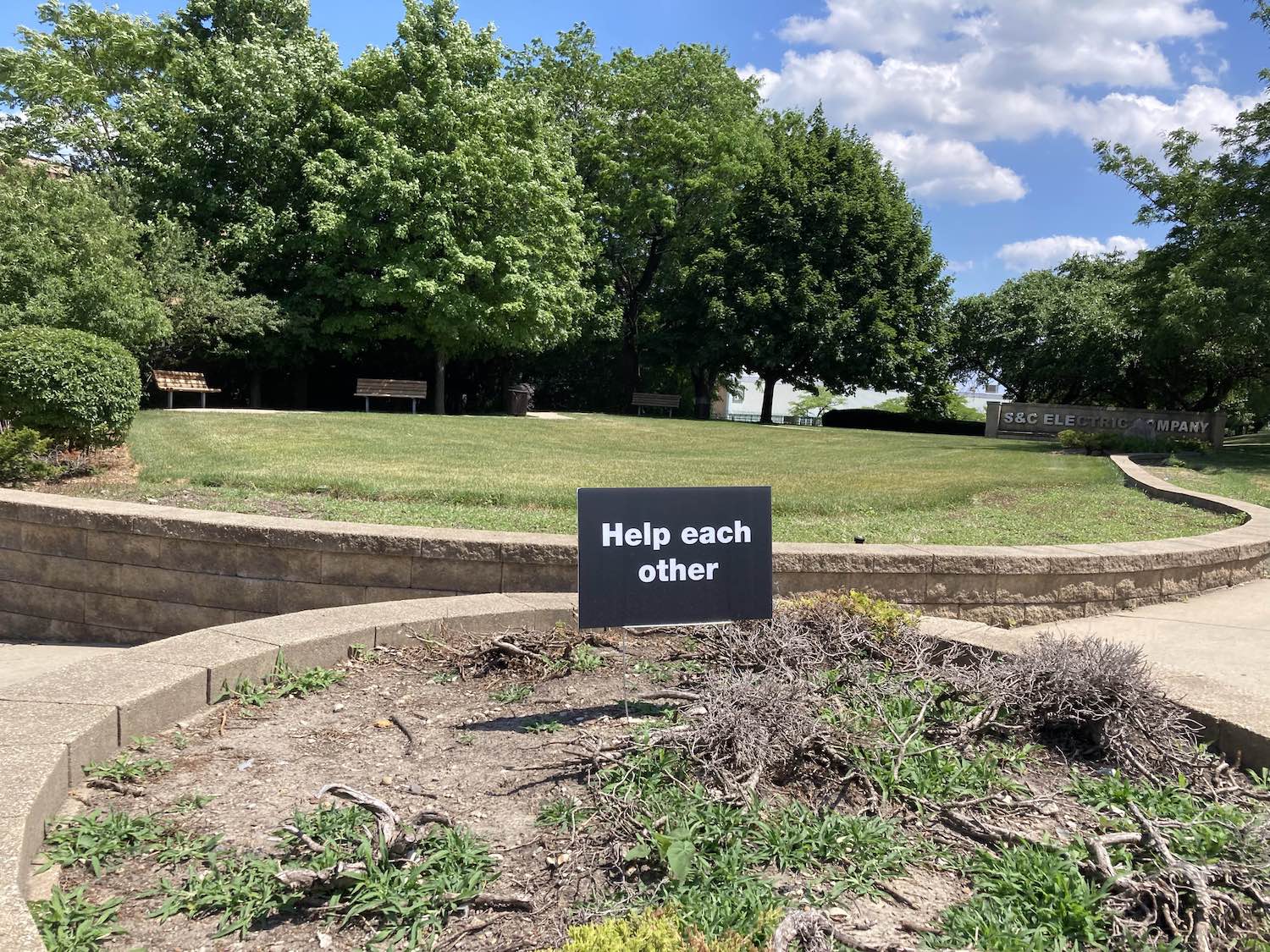Toward Mutualistic Technology
My new piece for Real Life essentially asks: What would an "abolish not reform" approach to big tech look like? Here's an overview and some bonus content.

As I read Mariam Kaba's book, We Do This 'Til We Free Us, I saw some parallels between the prison industrial complex and what the piece refers to as the "data capitalist complex," which mainly comprises big tech companies like Facebook and Google. There are many important differences between police and tech, but the similarities jumped out to me. For the Real Life piece, I focused on two: (1) the cyclic, everyday nature of harm, and (2) the need for alternative paradigms.
For one, there are enough "incidents" of both police violence and tech harm that neither should really be seen through an "incident" framing. There may be some instances where it's useful to list off the "itemized atrocities" of police or of big tech companies, but these long, growing lists can be desensitizing and immobilizing. Facebook, for example, has already facilitated mass shootings, insurrection, and genocide — do we really need to wait for further harm before intervening?
The lists of atrocities can also mask over everyday harms, suggesting that the problem lies in the extreme, when it might actually lie in the ordinary. Frameworks like surveillance capitalism, commercial advertising, and data colonialism help show that big tech perpetrates harm every day.
My idea for the piece came from this first point about atrocities and everyday harms, but the writing and editing process led me to the second: the need for alternative paradigms. This is where the ✨bOnUs CoNtEnT✨ comes in!
In an earlier draft, I delved deeper into the paradigm(s) underlying big tech:
it is helpful to take a cue from abolitionists and revisit the histories of large technology companies. As it pertains to Facebook, Mark Zuckerberg infamously wanted to sort and rank people by their physical appearance. For Google, Larry Page and Sergey Brin wanted to sort and rank web pages based on “authoritativeness.” Both companies were founded under logics of hierarchy: separation, competition, and ranking. And because they became incorporated in the U.S., both companies grew under logics of capitalism, which entailed more separation, more competition, and more ranking.
The final draft summarized these competition-oriented logics as capitalism, i.e. the data capitalist complex. Going a bit deeper, there is also clear synergy with Darwinism, which presumes constant competition and hierarchies as necessary for life. Again, going back to an earlier draft:
Darwinian philosophy presumes violent competition in order to preserve hierarchies, and perhaps to no surprise, it has been used to defend vitriolic social domination (i.e. Social Darwinism) such as white supremacy. As Matthew Dagher-Margosian summed up in a podcast episode, “Darwin kind of sucks in a lot of ways.”
In the aforementioned podcast, Yangyang Cheng and Matthew Dagher-Margosian discuss the U.S. preference for Charles Darwin's evolution over others, such as Peter Kropotkin's or Jean-Henri Fabre's. These other versions place less emphasis on competition and hierarchy, and more emphasis on cooperation and mutualism.
For example, in Fabre's ecology, the dung beetle is not "at the bottom of the food chain," it's actually one of the most important organisms in the entire ecosystem. The dung beetle circulates energy back into the ecosystem that would otherwise go to actual waste (pun intended). Without the dung beetle, the ecosystem would lose its self-sustainability.
In short, the U.S. probably prefers Darwin's version of evolution because it better aligns with the goals of capitalism: the more competition, the better. That maxim also undergirds the new wave of antitrust bills in Congress, which presume that "fair competition" will fix everything.
Competition and capitalism can seem inevitable, just like prisons and policing. But Kaba's book does an amazing job deconstructing inevitability, demonstrating that alternatives are indeed possible. I'd like to think the same is true of big tech: It may be difficult to imagine a world without Google, Amazon, Uber, Facebook, etc., but it is entirely possible.
Also, critically, this is not to say we just need a more competitive marketplace with more options for consumers. Real change will also require an entirely new underlying paradigm. There are plenty of alternative ethical frameworks to work from, and I think mutual aid should be one of them. I plan to write more on this topic soon, but for now, here is another blurb from an earlier draft:
the “tragedy of the commons” is often used to illustrate the inevitability of competition and the merits of individualized private property. In one common framing, an open-access pond is quickly overfished and depleted because, the thinking goes, people inevitably accumulate as many fish as possible for themselves with no regard for long-term consequences.
The theory of mutual aid takes a different approach to the commons, mainly through the simple proposition of cooperation. The Nobel laureate Elinor Ostrom substantiated the proposition with theoretical and empirical evidence, showing that people do not inevitably compete to accumulate the most fish—in many cases they cooperatively steward the pond.
